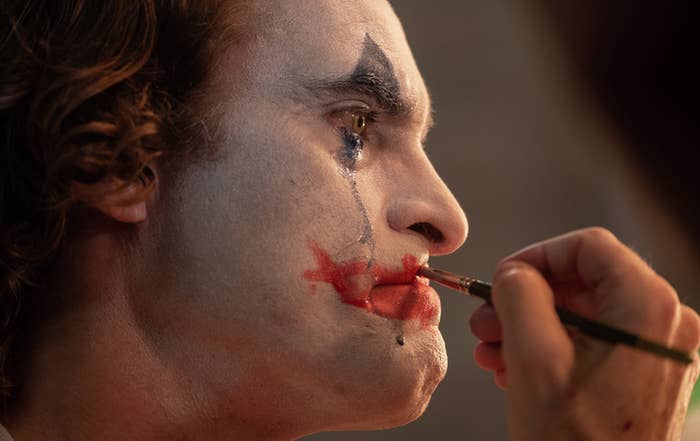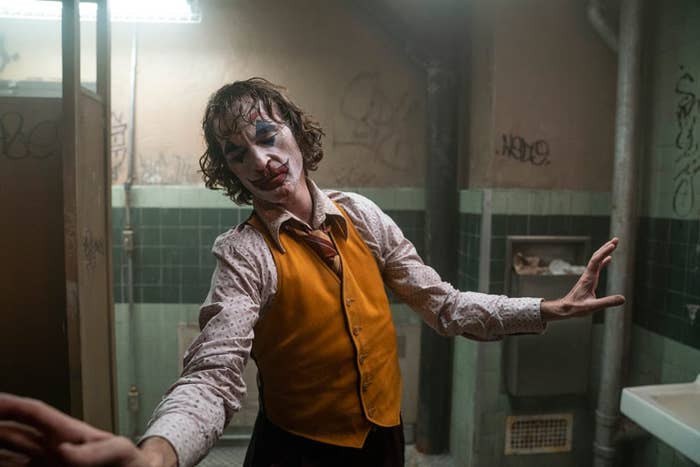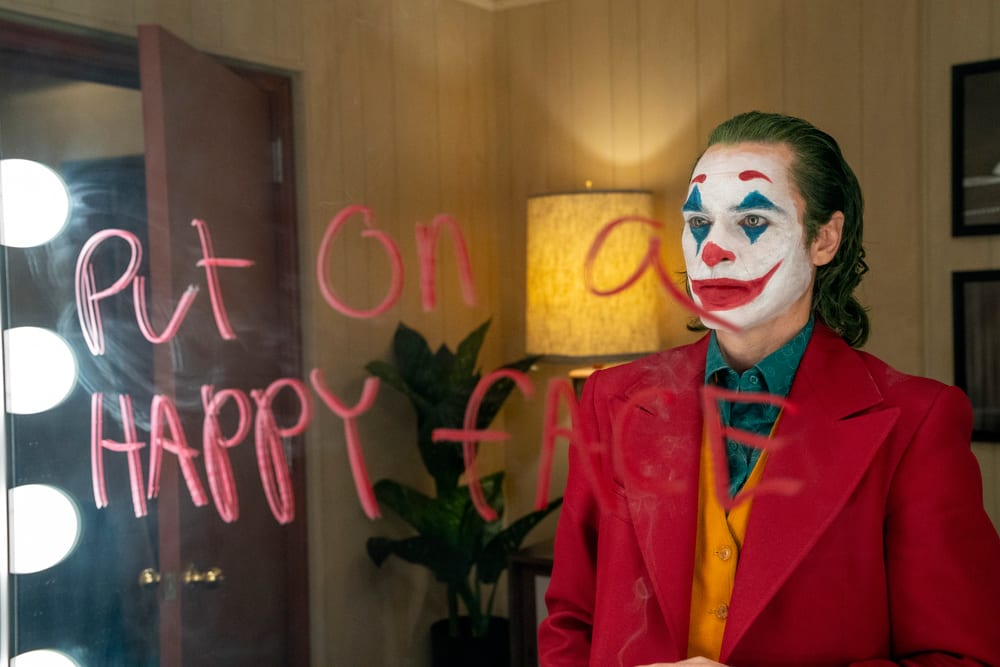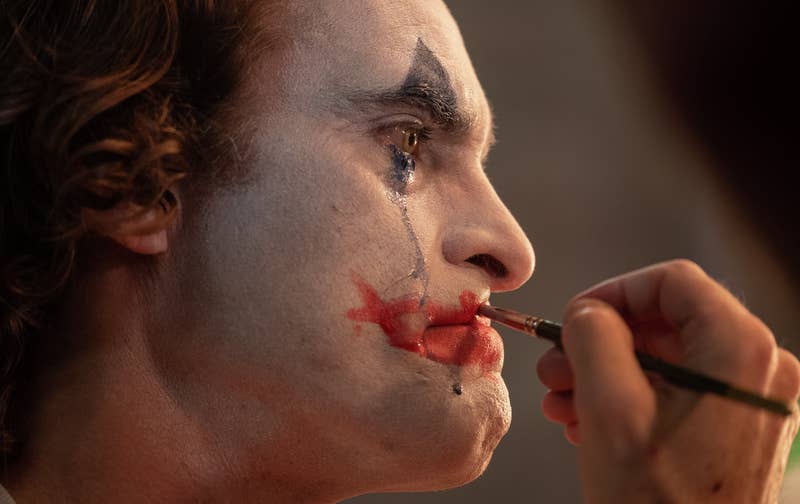
In a twist of irony crueler than anything that happens on-screen in Todd Phillips’ super Grim Dark Gritty (insert more adjectives) Joker, the biggest joke is that, after almost two months of hype and debate about the movie’s morality or lack thereof—and subsequently, the inherent danger it may encompass as a battery pack for wayward shooter-type incels in search of direction—it actually...isn’t extreme enough. In a media screening earlier this week, I left Joker not so much shaken, disturbed and awed but moreso bemused. Is that it?
Ed Note: Spoilers for Joker follow, don’t read if you aren’t a Para-Incel and/or DC fanboy who saw a Thursday evening screening.
Any idiot who has seen one prequel before could’ve predicted Joaquin Phoenix’s downtrodden loser-turned-supervillain Arthur Fleck wouldn’t actually be thee Joker for the majority of the film. Which is fine, and par for the course even. But somehow the final product fails at both validating and cementing his transformation—and the entire movie crumbles as a result.
The reason why most prequels end up being inferior is twofold: building towards a narrative outcome we already know saps the proceedings of any natural tension, and that same foreknowledge typically enables the writer to be lazy about how we eventually get there. In the seedy, ‘70s New York-esque Gotham City Phillips and co-writer Scott Silver have created, we’re told almost immediately that the city is sitting on a powder keg ready to ignite at any second—with poverty, violence, and classism as the accelerants. The reasonable assumption then, is that after a series of events that corrode his sensitivity into nihilism and misanthropy, Arthur will light the match, and become the chaos agent who pushes the toppling city over into madness. Only, that doesn’t really happen.
Arthur, after suffering a string of indignities, does not go on a disturbing spree that endears a disillusioned minority of the city’s citizens to his cause. Instead, he slays a group of stockbrokers one night on the train, a killing that two-thirds of which would rate as self-defensive manslaughter over murder. And then he goes about his sad life, in a truly tedious second-act that is way duller than a movie about a burgeoning homicidal psychopath has any right to be. Sure he kills a couple of other people, but before his grand coming out on Robert De Niro Leno’s talk show, these are private, personal killings that don’t resonate outside of Arthur’s own small world. The woman whom the jerks were harassing (but who doesn’t actually witness their murders) doesn’t go on the news, and hype Arthur up to stalk the streets in search of injustice that feeds his bloodlust. Yet somehow while Arthur is off imagining himself on dates with women out of his league and learning his mother Frances Conroy is a nutjob, this incident is enough to spark that anarchy the city was susceptible to. Somehow, the murder of three junior guys clearly broke enough to still be on the train past midnight is enough to make the downtrodden poor class take up arms and clown masks against the billionaire Thomas Waynes of the world. Huh?

Remember that behind the scenes clip Todd shared during production of Joaquin-as-Joker striding out of a subway with an army of masked clowns behind him? In the actual movie, this so-called supervillain is really just bumbling through a rally he inadvertently sparked, evading two even more bumbling cops as he marches on his way to kill De Niro’s talk show host. Why has De Niro even invited a man he led his audience to jeer at to his show? What did he honestly think would happen? Why doesn’t he listen to Marc Maron when a man he made fun of shows up to his studio in clown makeup (as the news is reporting violent clowns ravaging the streets, currently) and requesting to be called by a different name? (If you want to go down a rabbit hole of the film’s implausibilities, one might even ask how De Niro obtained what amounts to cellphone footage of Arthur’s standup given the circa-70s era setting, but that’s beside the point.) Phoenix’s duet with De Niro is appropriately chilling, for sure. But it’s too little too late. We haven’t witnessed Arthur assume control of anything. He snaps because the movie’s runtime mandates it’s about time for him to and continues pursuing his own petty vendettas. His live murder of De Niro’s nationally beloved host is enough for the ravaging clowns to quickly marshal to him as a leader—minutes after he coldly tells De Niro, “You get what you deserve,” it’s already become a call-to-arms to the pillagers on the street. But it’s all half-baked and underfed. A powerful shot of him atop a cop car loses potency once it becomes clear that we’ve reached the end of the movie. Meanwhile, in the movie’s truly inadvertent laugh-out-loud moment, we’re treated to the murders of Thomas and Martha Wayne once again (down to the slo-mo pearls falling). If there was any indication that Todd, for all his posturing, isn’t outside or online at all, including a familiar scene wildly lambasted for its redundancy is it.

All of that is to say, the increasingly deafening buzz of debate surrounding this movie is overblown. Concern for theatergoers safety is warranted—potential shooters don’t need a movie to be “good” to rally around it—but debates about the film’s actual contents and the danger they impose needn’t continue once people actually see it. The film does indeed glorify its subject—again, that loving vanity shot on the police car says hi, as does a scene like Arthur not killing a fellow show-clown because he was “always nice to him”—but it’s hardly enough to rile anyone up let alone serve as some sort of manifesto. You don’t leave this film like with a deep understanding of one of pop culture’s greatest enigmas, nor does it feel like you’ve witnessed the unsettling creation of a man capable of bringing the city to its knees.
As it turns out, the only fear surrounding this film that’s actually warranted is that the guy famous for Old School and The Hangover would miss the nuances needed to give this character and story its due. You get what you deserve.

